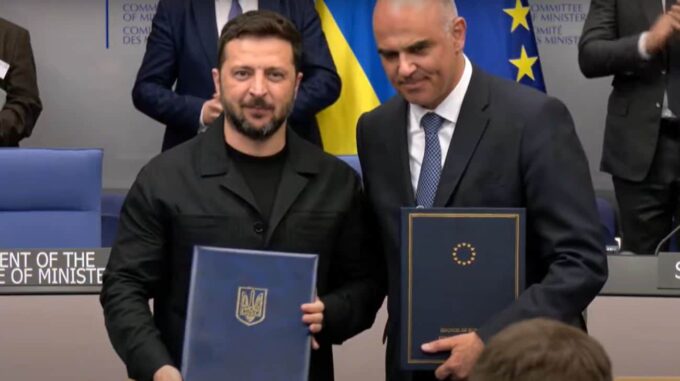Ukraine and the Council of Europe have agreed to establish a special tribunal to punish those responsible for the crime of aggression by the Russian Federation

On June 25, Ukrainian President Volodymyr Zelensky and the Secretary General of the Council of Europe, Alain Berset, signed an important document that opens a new page in the fight against international crimes committed by Russia against Ukraine. This historic agreement provides for the establishment of a Special Tribunal that will specialize in the investigation and prosecution of high-ranking officials and political leaders of the Russian Federation responsible for crimes of aggression, violations of international law and gross violations of human rights. The signing took place at the Council of Europe building in Strasbourg during the first visit of the President of Ukraine to this organization, marking a new stage in cooperation between Ukraine and European institutions in the context of international justice. Prior to this, the Committee of Ministers of the Council of Europe officially authorized the Secretary General, Alain Berset, to sign the relevant agreement, which indicates high political support for the initiative. The new special tribunal will have international legal personality, which significantly distinguishes it from hybrid or national judicial structures. Its creation is based on Article 8 bis of the Rome Statute of the International Criminal Court (ICC), and also takes into account the clarifications of the United Nations General Assembly in Resolution 3314 on the crime of aggression. This means that its jurisdiction will include not only ordinary war crimes, but also a particularly serious crime - aggression committed by an aggressor state. An important innovation is the possibility of passing sentences even without the presence of the accused - political or military leaders who may be hidden or located outside the territory suffering from aggression. This provides a chance to hold accountable those responsible for planning and directing crimes, even if they try to avoid criminal responsibility. The specifics of the process allow the case to move forward even without the direct participation of the prosecutors, which is a significant step in the fight against impunity. Another important aspect is the possibility of holding accountable not only the Russian political and military leadership, but also potentially Belarus, the DPRK and other countries that may participate in coordinating or supporting the aggression against Ukraine. This creates a precedent for broader international accountability for war crimes and crimes of aggression. It should be noted that the legal procedure for establishing a special tribunal began on May 14 with the launch of a corresponding initiative by the Committee of Ministers of the Council of Europe. The political approval of this idea took place earlier, during the summit in Lviv on May 9, which indicates broad support for this concept among European partners. The implementation of this initiative should become a significant stage in international efforts to establish justice for the crimes of the Russian Federation caused by the war in Ukraine. For further details and specifics of the arrangements for the creation of the special tribunal, read our special article "Nuremberg for Putin. All the details about the tribunal for the Russian leadership, which is being created in The Hague," to better understand the scale and possibilities of this important international initiative.

